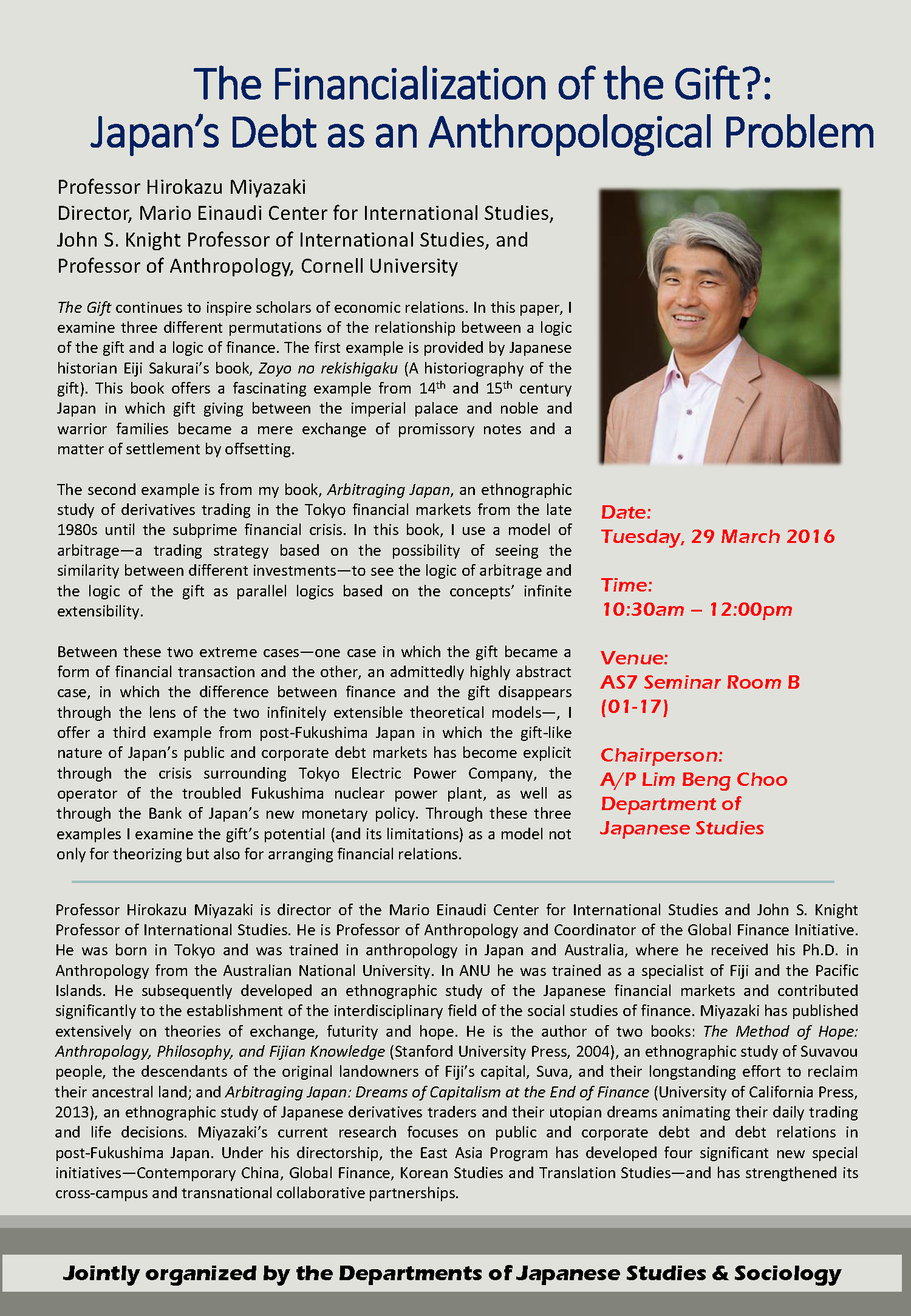The Financialization of the Gift?: Japan’s Debt as an Anthropological Problem
Abstract
The Gift continues to inspire scholars of economic relations. In this paper, I examine three different permutations of the relationship between a logic of the gift and a logic of finance. The first example is provided by Japanese historian Eiji Sakurai’s book, Zoyo no rekishigaku (A historiography of the gift). This book offers a fascinating example from 14th and 15th century Japan in which gift giving between the imperial palace and noble and warrior families became a mere exchange of promissory notes and a matter of settlement by offsetting.
The second example is from my book, Arbitraging Japan, an ethnographic study of derivatives trading in the Tokyo financial markets from the late 1980s until the subprime financial crisis. In this book, I use a model of arbitrage—a trading strategy based on the possibility of seeing the similarity between different investments—to see the logic of arbitrage and the logic of the gift as parallel logics based on the concepts’ infinite extensibility.
Between these two extreme cases—one case in which the gift became a form of financial transaction and the other, an admittedly highly abstract case, in which the difference between finance and the gift disappears through the lens of the two infinitely extensible theoretical models—, I offer a third example from post-Fukushima Japan in which the gift-like nature of Japan’s public and corporate debt markets has become explicit through the crisis surrounding Tokyo Electric Power Company, the operator of the troubled Fukushima nuclear power plant, as well as through the Bank of Japan’s new monetary policy. Through these three examples I examine the gift’s potential (and its limitations) as a model not only for theorizing but also for arranging financial relations.
About the Speaker
Professor Hirokazu Miyazaki is director of the Mario Einaudi Center for International Studies and John S. Knight Professor of International Studies. He is Professor of Anthropology and Coordinator of the Global Finance Initiative. He was born in Tokyo and was trained in anthropology in Japan and Australia, where he received his Ph.D. in Anthropology from the Australian National University. In ANU he was trained as a specialist of Fiji and the Pacific Islands. He subsequently developed an ethnographic study of the Japanese financial markets and contributed significantly to the establishment of the interdisciplinary field of the social studies of finance. Miyazaki has published extensively on theories of exchange, futurity and hope. He is the author of two books: The Method of Hope: Anthropology, Philosophy, and Fijian Knowledge (Stanford University Press, 2004), an ethnographic study of Suvavou people, the descendants of the original landowners of Fiji’s capital, Suva, and their longstanding effort to reclaim their ancestral land; and Arbitraging Japan: Dreams of Capitalism at the End of Finance (University of California Press, 2013), an ethnographic study of Japanese derivatives traders and their utopian dreams animating their daily trading and life decisions. Miyazaki’s current research focuses on public and corporate debt and debt relations in post-Fukushima Japan. Under his directorship, the East Asia Program has developed four significant new special initiatives—Contemporary China, Global Finance, Korean Studies and Translation Studies—and has strengthened its cross-campus and transnational collaborative partnerships.


